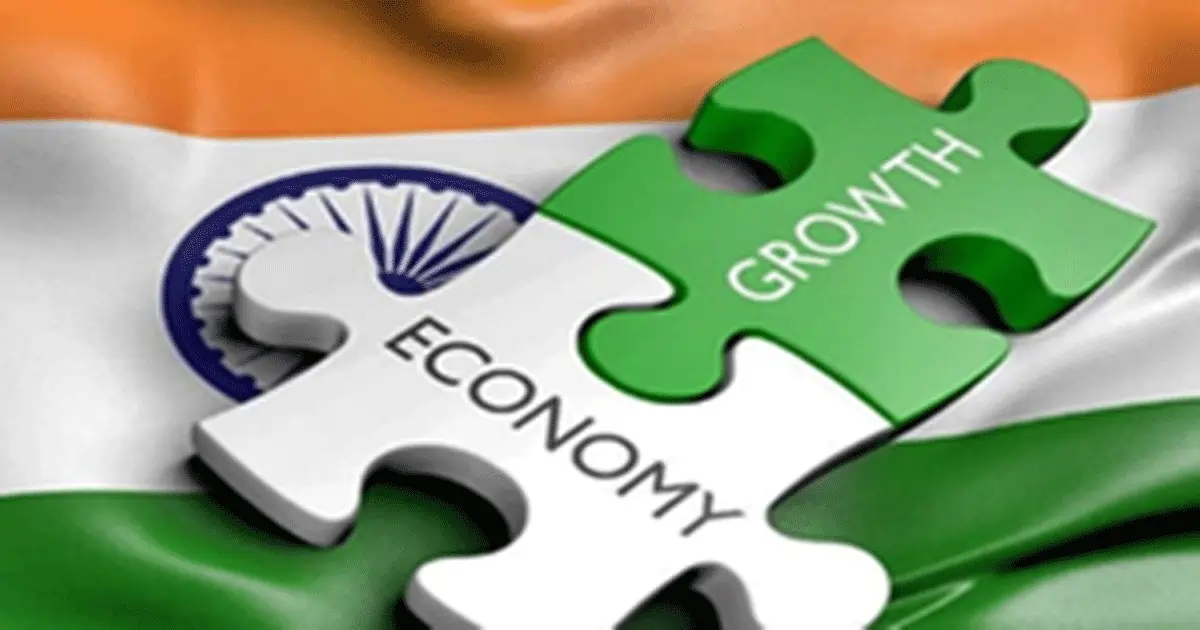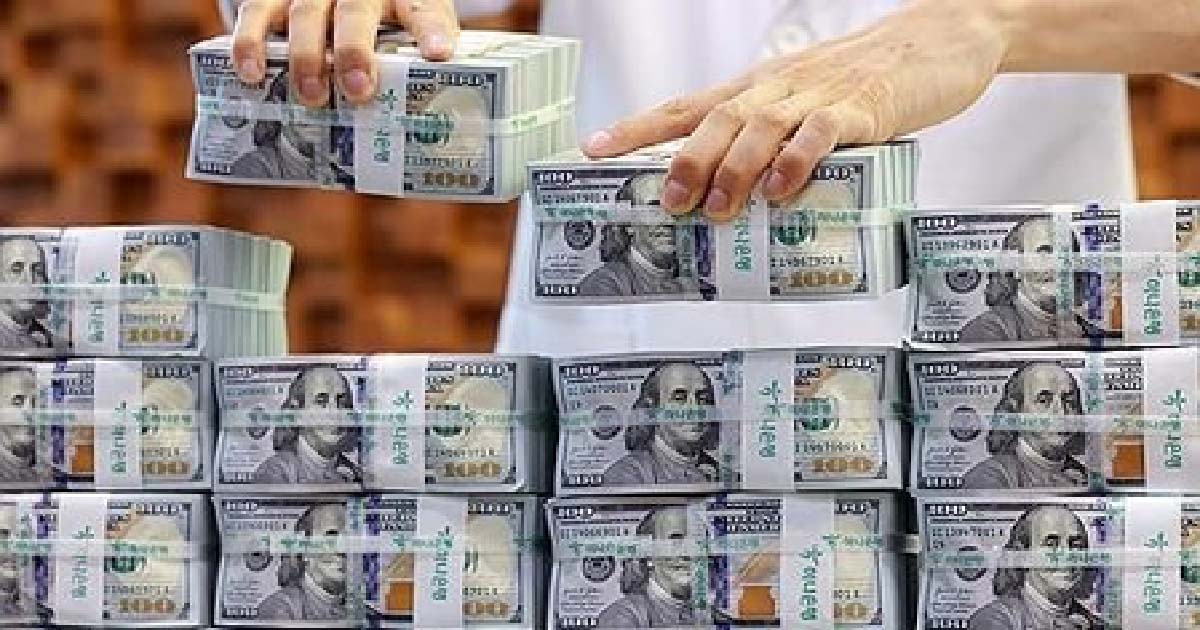Business
Union Budget 2025 to act as catalyst for India’s $5 trillion economy goal

New Delhi, Jan 29: India’s goal of becoming a $5 trillion economy calls for policies that promote sustainable and inclusive growth and the Union Budget 2025-26 can act as a catalyst for growth while ensuring equity and efficiency in the economy, a pre-budget survey showed on Wednesday.
As India prepares for the Budget, the economic outlook remains positive, reflecting a shared confidence among businesses in the nation’s growth trajectory.
Grant Thornton Bharat’s pre-budget survey showed that India is on track to become the fourth-largest global economy by 2026.
The majority of survey respondents expect economic growth between 6-6.9 per cent in FY 2025-26, while 22 per cent anticipate a stronger growth rate of 7-7.9 per cent.
Significant growth drivers include ease of doing business reforms (68 per cent), inflation and monetary policy management (57 per cent), increase in FDI and strong trade agreements with major global economies (54 per cent), government incentives and subsidies to boost domestic consumption (51 per cent), and technological advancements (49 per cent).
Among corporate tax priorities, the Budget should streamline GST compliance procedures (44 per cent), reduce corporate tax rates for small and medium enterprises (30 per cent), enhanced measures for resolving tax disputes (15 per cent), introduction of more tax incentives for startups (14 per cent), and introduction of new tax incentives for research and development (13 per cent).
The survey highlighted key industries that will be the growth drivers, including agriculture and food processing, automotive, consumer and retail, healthcare and pharmaceuticals, technology, financial services, real estate, and energy and renewables.
The agriculture sector is a cornerstone of India’s economic growth. The previous Union Budget 2024-25, with a Rs 1.52 lakh crore allocation towards the sector, made significant strides in productivity, research, and resilience.
“To establish India as a global leader in agriculture, the upcoming budget will need to focus on several key areas, such as streamlining exports, improving supply chains, expanding access to credit, empowering women in agriculture and promoting sustainable practices,” said the report.
The Union Budget 2025 presents an opportunity to implement transformative reforms across industries. Strengthening fiscal policies, incentivising innovation, and improving regulatory efficiency will be crucial for sustained economic growth, the report emphasised.
Business
India in talks with 50 nations on fair trade deals: Piyush Goyal

New Delhi, Nov 28: Commerce and Industry Minister Piyush Goyal said on Friday that India is currently engaged in discussions on fair and balanced trade deals with 14 countries or groups representing nearly 50 nations, including the United States, the European Union, GCC countries, New Zealand, Israel, Eurasia, Canada, South Africa and the Mercosur group.
Addressing the annual general meeting of the Federation of Indian Chambers of Commerce and Industry (FICCI) here, the minister underlined that balanced and equitable trade agreements have already been concluded with Australia, the UAE, Mauritius, the United Kingdom and the four-nation EFTA bloc.
Highlighting broader global developments, the minister said that recent geopolitical and economic challenges have underscored the need for trusted partners and resilient supply chains. He stated that India’s expanding network of free trade agreements (FTAs) and economic partnerships is aimed at building long-term cooperation anchored in fairness, transparency and mutual benefit.
Goyal said that the idea of self-reliance is central in India’s civilisational ethos, recalling references from the Bhagavad Gita and Mahatma Gandhi’s emphasis on Swadeshi. He said that self-reliance has historically guided India’s progress and continues to remain central to the country’s economic strategy. He added that this vision has been strengthened through the focus on Atmanirbhar Bharat under the leadership of Prime Minister Narendra Modi.
Referring to the recent EFTA agreement, the minister noted that the bloc has committed to invest $100 billion in India across innovation and precision manufacturing. He underscored India’s cost competitiveness in research and innovation, stating that high-quality innovation undertaken in India can be achieved at a fraction of the cost compared to Europe or the United States.
The Minister highlighted India’s strengths in innovation and technology, supported by a young demographic, increasing digital adoption and a growing talent pool. He said that India’s large number of STEM graduates and widespread internet access create strong potential in emerging areas such as applied artificial intelligence, automation, robotics and deep-tech innovation.
He noted that the recently announced $12 billion Research, Development and Innovation (RDI) fund, along with ongoing support to startups and deep-tech industries, will further accelerate India’s innovation ecosystem.
Goyal emphasised the importance of strengthening skilling to prepare India’s youth for future opportunities. He said that unlike many developed economies facing ageing populations, India’s youthful demographic is quick to adapt to emerging technologies and has already demonstrated high engagement with digital platforms. He added that this readiness positions India to play a major role in the global technology landscape.
The minister outlined India’s strengths through the ‘PESTLE’ framework, noting that Prime Minister Modi has consistently advanced the vision of self-reliance across sectors. He said that politically, a stable and predictable government committed to “Minimum Government, Maximum Governance” has enhanced investor confidence. In the economic domain, initiatives such as the National Manufacturing Mission and the Rs 25,000 crore Export Promotion Mission are supporting India’s rise towards becoming the world’s third-largest economy.
On the social front, he highlighted that the four Labour Codes ensure better wages and protections, while the Antyodaya approach has supported the fulfilment of basic needs.
In the technology sector, Goyal pointed to initiatives aimed at reducing external dependence, including the Semiconductor Mission (Rs 76,000 crore) and the Rs 7,000 crore programme for permanent magnet production, which strengthen domestic manufacturing and supply chain security. In the legal domain, he referred to ongoing reforms, including progress toward Jan Vishwas 3.0, designed to enhance ease of doing business.
He further noted that the ‘Atomic Energy Bill 2025’ marks a historic shift by opening up the nuclear sector to strengthen energy sovereignty.
The Minister urged FICCI to adopt a mission-driven approach to promoting innovation, deepening research and development, strengthening industry-academia linkages and supporting India’s journey towards becoming a developed nation by 2047.
Business
India projected to log 7 pc GDP growth in 2025: Report

New Delhi, Nov 28: Ahead of India’s Q2 GDP numbers on Friday, Moody’s Ratings said that the country is projected to clock 7 per cent GDP growth in 2025 and 6.4 per cent in 2026 due to domestic growth and economic resilience amid global disruptions.
The country will lead growth among emerging markets and in the Asia Pacific (APAC) region, said the global rating agency. “India will lead growth among emerging markets and across the region, with GDP growing 7 per cent in 2025 and 6.4 per cent in 2026,” according to a note by Moody’s Ratings.
The average GDP growth in APAC is projected to remain steady at 3.4 per cent in 2026, compared to expected growth of 3.6 per cent in 2025.
According to the rating agency, emerging markets will drive GDP growth in the region, with average growth of 5.6 per cent.
In September, Moody’s Ratings affirmed India’s long-term local and foreign-currency issuer ratings and the local-currency senior unsecured rating at Baa3. The global ratings agency has also maintained its outlook for India as stable.
“The rating affirmation and stable outlook reflect our view that India’s prevailing credit strengths, including its large, fast-growing economy, sound external position and stable domestic financing base for ongoing fiscal deficits, will be sustained,” Moody’s said in its note.
The rating agency has said that the US’ imposition of high tariffs on India will have limited negative effects on India’s economic growth in the near term. “However, it may constrain potential growth over the medium to long term by hindering India’s ambitions to develop a higher value-added export manufacturing sector,” said the rating agency.
India’s credit strength is balanced by long-standing weaknesses on the fiscal side which will remain. Strong GDP growth and gradual fiscal consolidation will lead to an only very gradual decline in the government’s high debt burden, and will not be sufficient to materially improve weak debt affordability, especially as recent fiscal measures to reinforce private consumption erode the government’s revenue base, according to the note.
Business
Foreign currency deposits in S. Korea post biggest drop in nearly 2 yrs in Oct

Seoul, Nov 28: Foreign currency deposits in South Korea declined by the most in about two years in October amid increased corporate repayment of foreign-currency borrowings and overseas investments by pension funds, central bank data showed on Friday.
Outstanding foreign currency-denominated deposits held by residents came to $101.83 billion as of end-October, down $5.26 billion from a month earlier, according to data from the Bank of Korea (BOK), Media reports.
It marked the sharpest monthly fall since January 2024, when deposits declined by $5.78 billion, and the second straight month of decrease.
Residents include South Korean citizens, foreigners who have lived in the country for more than six months, and foreign companies. The data excludes interbank deposits.
“The decline was due mainly to companies’ repayment of foreign-currency borrowings, a drop in investor deposits at securities firms and overseas investment executions by pension funds, among other factors,” a BOK official said.
Corporate foreign currency deposits fell $5.5 billion on-month to $86.76 billion, while individual holdings gained $240 million to $15.07 billion.
By currency, U.S. dollar-denominated deposits dropped $5.08 billion to $85.63 billion, and Japanese yen deposits fell $260 million to $8.63 billion.
Euro deposits were nearly unchanged at $5.01 billion, while Chinese yuan deposits increased $60 million to $1.25 billion, the data showed.
Meanwhile, South Korean stocks traded sharply lower late Friday morning as investors dumped tech shares amid lingering uncertainties over artificial intelligence (AI) technology.
The benchmark Korea Composite Stock Price Index (KOSPI) lost 39.81 points, or 1 per cent, to 3,947.1, as of 11:20 a.m.
Most shares traded in negative territory. Market bellwether Samsung Electronics sank 1.93 percent, and SK hynix fell 0.74 per cent.
Top carmaker Hyundai Motor retreated 0.19 percent, and its sister Kia dropped 0.26 per cent.
Leading battery maker LG Energy Solution tumbled 5.94 per cent, and defense giant Hanwha Aerospace declined 2.2 per cent.
The local currency was quoted at 1,465.5 won against the greenback as of 11:20 a.m., down 0.25 won from the previous session’s close.
-

 Crime3 years ago
Crime3 years agoClass 10 student jumps to death in Jaipur
-

 Maharashtra1 year ago
Maharashtra1 year agoMumbai Local Train Update: Central Railway’s New Timetable Comes Into Effect; Check Full List Of Revised Timings & Stations
-

 Maharashtra1 year ago
Maharashtra1 year agoMumbai To Go Toll-Free Tonight! Maharashtra Govt Announces Complete Toll Waiver For Light Motor Vehicles At All 5 Entry Points Of City
-

 Maharashtra1 year ago
Maharashtra1 year agoFalse photo of Imtiaz Jaleel’s rally, exposing the fooling conspiracy
-

 National News1 year ago
National News1 year agoMinistry of Railways rolls out Special Drive 4.0 with focus on digitisation, cleanliness, inclusiveness and grievance redressal
-

 Maharashtra1 year ago
Maharashtra1 year agoMaharashtra Elections 2024: Mumbai Metro & BEST Services Extended Till Midnight On Voting Day
-

 National News1 year ago
National News1 year agoJ&K: 4 Jawans Killed, 28 Injured After Bus Carrying BSF Personnel For Poll Duty Falls Into Gorge In Budgam; Terrifying Visuals Surface
-

 Crime1 year ago
Crime1 year agoBaba Siddique Murder: Mumbai Police Unable To Get Lawrence Bishnoi Custody Due To Home Ministry Order, Says Report












